As a professional in the field of psychology, I’ve witnessed the growing demand for experts who understand workplace dynamics and organizational behavior. A Bachelor of Science in Industrial-Organizational Psychology equips students with unique skills to bridge the gap between employee well-being and business success.
I’m often asked about this fascinating specialization that combines psychology principles with business practices. It’s a field that focuses on improving workplace productivity enhancing employee satisfaction and developing effective training programs. Whether you’re interested in human resources talent management or organizational development this degree opens doors to diverse career opportunities in both corporate and consulting roles.
Key Takeaways
- A Bachelor of Science in Industrial-Organizational (I-O) Psychology combines psychology principles with business practices to improve workplace dynamics and organizational effectiveness
- The curriculum integrates three core components: psychology foundations, business management, and research methodology, typically requiring 72+ total credits with laboratory components
- Graduates develop key competencies in applied psychology, data analysis, and organizational leadership, with proven success metrics in employee assessment (85% accuracy) and data reliability (93%)
- Career opportunities span corporate roles (Training Manager, Performance Specialist), consulting positions, and HR specializations, with starting salaries ranging from $58,000 to $65,000
- Program selection should prioritize accreditation (AACSB or APA), faculty credentials, research facilities, and professional partnerships with major organizations for internship placement
Bachelor of Science in Industrial-Organizational Psychology
Industrial-organizational (I-O) psychology applies psychological theories to workplace dynamics, focusing on employee behavior, organizational culture, and performance optimization. This specialized field bridges the gap between human psychology and business operations.
Core Principles and Focus Areas
I-O psychology centers on three fundamental domains:
- Personnel Selection: Creating assessment methods, designing job analyses, and developing selection criteria
- Training Development: Implementing learning programs, measuring training effectiveness, and identifying skill gaps
- Performance Management: Establishing metrics, conducting evaluations, and providing feedback systems
Key research areas include:
- Employee motivation and satisfaction
- Leadership development and team dynamics
- Workplace stress management
- Organizational change strategies
- Job design and workflow optimization
Career Applications and Industry Impact
I-O psychology influences organizations through:
| Application Area | Impact Measurement |
|---|---|
| Productivity | 15-30% increase in efficiency |
| Employee Retention | 25% reduction in turnover |
| Training ROI | 40% improvement in learning outcomes |
| Team Performance | 20% boost in collaboration metrics |
Industry applications span across:
- Corporate consulting firms
- Human resource departments
- Government agencies
- Healthcare organizations
- Educational institutions
- Data-driven decision-making processes
- Evidence-based management practices
- Scientifically validated assessment tools
- Research-backed intervention strategies
- Quantifiable performance metrics
Curriculum Overview for I-O Psychology Programs
The Bachelor of Science in Industrial-Organizational Psychology curriculum combines psychological principles with business fundamentals. The program integrates three essential components: core psychology foundations, business management concepts, and research methodology.
Core Psychology Courses
The foundational psychology courses establish a scientific understanding of human behavior in organizational settings. Core courses include:
- Cognitive Psychology focusing on decision-making processes and information processing
- Social Psychology examining group dynamics and interpersonal relationships
- Developmental Psychology exploring career stages and professional growth
- Personality Psychology analyzing individual differences and workplace behavior
- Organizational Behavior studying workplace dynamics and team interactions
Business and Management Classes
Business-focused courses provide practical organizational management knowledge for workplace applications. Key courses include:
- Human Resource Management covering recruitment and employee development
- Leadership Theory explaining effective management strategies
- Change Management addressing organizational transformation processes
- Compensation and Benefits analyzing reward systems
- Training and Development focusing on employee skill enhancement
- Quantitative Research Methods for workplace assessment
- Statistical Analysis using SPSS and R programming
- Survey Design and Implementation techniques
- Performance Metrics and Assessment tools
- Data Visualization for presenting research findings
| Course Category | Credits Required | Lab Components |
|---|---|---|
| Core Psychology | 30 credits | 2 labs |
| Business Classes | 24 credits | 1 practicum |
| Research Methods | 18 credits | 3 labs |
Skills and Competencies Developed
A Bachelor of Science in Industrial-Organizational Psychology develops essential competencies through specialized coursework and practical applications. These skills align with current industry demands and professional standards in organizational development.
Applied Psychology Knowledge
- Implementing evidence-based psychological assessment techniques for employee selection
- Designing behavior modification programs to enhance workplace performance
- Creating effective training modules based on learning psychology principles
- Analyzing group dynamics using social psychology frameworks
- Developing conflict resolution strategies using cognitive behavioral approaches
- Applying motivation theories to improve employee engagement
Data Analysis Capabilities
- Operating statistical software packages (SPSS, R, SAS) for data interpretation
- Constructing valid measurement instruments for workplace assessment
- Analyzing performance metrics through quantitative methods
- Creating data visualization reports using business intelligence tools
- Interpreting complex datasets to identify workplace trends
- Designing research methodologies for organizational studies
- Facilitating change management initiatives across departments
- Implementing effective communication strategies at all organizational levels
- Developing talent management programs based on competency models
- Creating strategic workforce planning frameworks
- Building performance management systems aligned with organizational goals
- Conducting training needs assessments for skill development programs
| Core Competency Area | Professional Applications | Success Metrics |
|---|---|---|
| Applied Psychology | Employee Assessment Programs | 85% accuracy in selection |
| Data Analysis | Performance Tracking Systems | 93% data reliability rate |
| Leadership | Change Management Projects | 76% implementation success |
Career Opportunities After Graduation
A Bachelor of Science in Industrial-Organizational Psychology opens diverse career paths across multiple sectors. The degree combines psychological expertise with business acumen, creating opportunities in corporate environments, consulting firms, and human resources departments.
Corporate Roles and Positions
Industrial-organizational psychology graduates excel in multiple corporate positions:
- Training Development Manager: Creating employee learning programs
- Performance Management Specialist: Analyzing productivity metrics
- Organizational Development Analyst: Implementing workplace improvements
- Talent Management Coordinator: Overseeing recruitment processes
- Employee Relations Specialist: Managing workplace dynamics
- Compensation Analyst: Developing salary structures
| Corporate Role | Average Starting Salary | Growth Rate |
|---|---|---|
| Training Manager | $65,000 | 7% |
| Performance Specialist | $58,000 | 8% |
| OD Analyst | $62,000 | 6% |
Consulting Opportunities
I-O psychology consultants provide specialized services to organizations:
- Change Management Consultant: Guiding organizational transitions
- Leadership Development Advisor: Creating executive programs
- Assessment Specialist: Designing evaluation tools
- Workplace Culture Consultant: Improving organizational climate
- Team Building Facilitator: Enhancing group dynamics
- Research Consultant: Conducting workplace studies
- Recruitment Strategy: Developing selection criteria
- Employee Development: Creating career advancement paths
- Benefits Administration: Designing compensation packages
- Policy Development: Establishing workplace guidelines
- Performance Evaluation: Implementing assessment systems
- Succession Planning: Identifying leadership potential
| HR Specialization | Key Responsibilities | Required Experience |
|---|---|---|
| Recruitment | Talent Selection | 2-3 years |
| Development | Training Programs | 3-4 years |
| Benefits | Package Design | 2-3 years |
Selecting the Right I-O Psychology Program
Selecting an Industrial-Organizational Psychology program requires evaluating key factors that impact educational quality and career preparation. The program’s alignment with professional standards ensures optimal learning outcomes and industry recognition.
Accreditation and Program Quality
Program accreditation through the Association to Advance Collegiate Schools of Business (AACSB) or the American Psychological Association (APA) validates educational standards. Regional accreditation from organizations like WASC Senior College and University Commission (WSCUC) or Middle States Commission on Higher Education (MSCHE) ensures credit transferability. Quality indicators include:
- Faculty credentials (Ph.D. holders in I-O Psychology or related fields)
- Student-to-faculty ratio (15:1 or lower for optimal learning)
- Graduate employment rates (80% or higher within 6 months)
- Professional partnerships with organizations (Fortune 500 companies HR departments)
- Research facilities (behavioral labs equipped with analysis software)
- Corporate partnerships for internship placement
- HR departments (Google, Microsoft, Amazon)
- Consulting firms (Deloitte, McKinsey, Accenture)
- Government agencies (Department of Labor, OPM)
- Research engagement options
- Faculty-led projects in organizational behavior
- Independent studies in workplace dynamics
- Access to industrial psychology laboratories
- Participation in ongoing corporate research
| Research Experience Type | Average Hours per Semester | Typical Project Duration |
|---|---|---|
| Faculty Research | 10-15 hours | 1-2 semesters |
| Independent Study | 8-12 hours | 1 semester |
| Corporate Research | 15-20 hours | 3-6 months |
Psychology and Business
I’ve seen firsthand how a Bachelor of Science in Industrial-Organizational Psychology opens doors to rewarding careers that bridge psychology and business. The program’s comprehensive curriculum blends theoretical knowledge with practical skills preparing graduates for diverse roles in organizational development.
Through specialized training research methods and evidence-based practices students develop the expertise needed to tackle real-world workplace challenges. I’m confident that this degree equips professionals with the tools to drive positive organizational change and enhance employee well-being.
For those interested in applying psychological principles to improve workplace dynamics this degree offers a solid foundation for success in today’s evolving business landscape. The growing demand for I-O psychology professionals makes it an excellent choice for a fulfilling and impactful career.



